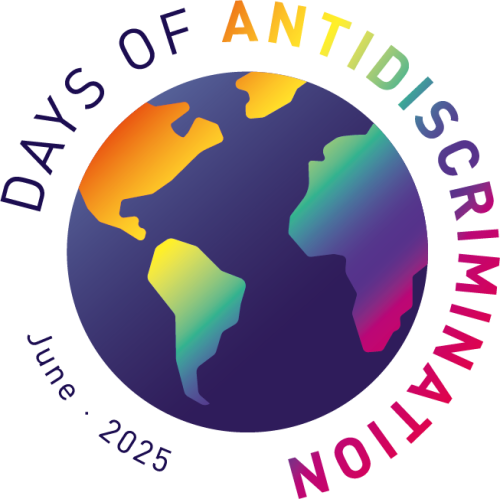Days of Antidiscrimination 2025

When? During the entire month of June 2025
Where? On both campuses and online
What? Different formats of exchange, workshops, keynote or performances with discussions, thematic focus on political and democratic processes, participation and representation
Monday, 2nd of June 2025
KLEVE 4–6pm, 01 01 002
Opening Keynote from Burak Yilmaz
Educator, podcaster and the author of „Ehrensache. Kämpfen gegen Judenhass“ Burak Yilmaz speaks about his journey. Born in Duisburg, he initiated the “Young Muslims in Ausschwitz” project in response to anti-Semitism at his youth center and has since considered it his life's work to combat anti-Semitism. He has received numerous awards for his commitment, including the Federal Cross of Merit of the Federal Republic of Germany. Afterwards, there will be an opportunity for a joint discussion.
Monday, 16th of June 2025
KAMP-LINTFORT 4–5.30pm, Room t.b.a.
How to Survive a System (That Wasn't Made for You)
A performative lecture exploring the paradoxes of representation and participation by Crystal Hassell
How do you take part in a system that simultaneously marginalizes you?Through sharp reflections, humor, and realness, this lecture exposes the hiddenlogics of exclusion masked as democracy and inclusion—and invites theaudience to unlearn, rethink, and imagine otherwise.
Untangling Survival: Safety, Strategy & Refusal
An interactive follow-up session.
We slow down. We share. Together, we explore what survival looks like within systems that weren’t built for us. Through reflection prompts and open dialogue, we unpack the blurry lines between inclusion and compliance, between safety and silence.
This is not a training. It’s not a debate. It’s a shared moment of recognition, strategy, and imagination.
Tuesday, 17th of June 2025
KLEVE, 3.30–5.30pm,
Democracy and Me
Workshop by Democrat Ramadani and Delia Kornelsen
Who am I? What is important to me in life? What have been democratic and undemocratic moments in my life? How do I perceive myself and the world? Why do I see things this way and not differently? What is democracy? What threatens it? What do we need to improve it? What should people in a democracy know and be able to do? How do we want to learn about it and live in a democracy that doesn't yet exist?
Democracy invites us to ask ourselves these and similar questions and to explore them together with others.
Democracy is not only a form of government but also a form of society, a way of life, and a form of experimentation. After all, democracies are always also undemocratic and must become developed further.
The history of democracy is one of privilege and discrimination. People are repeatedly excluded. Yet, democracy carries the promise, that everything that isn't good, can be improved – whether in families, among friends, at work, or society as a whole. What is democratic? What is undemocratic? What could be more democratic? These are important questions for reflection in our personal, professional, and political lives.
The seminar offers inspiration for engaging with these questions, opens up a space for the diversity of perspectives, and offers practical exercises for exploring democracy.
Registration and further information: joost.kleuters@hochschule-rhein-waal.de
The workshop is offered as part of „HSRW Voices: International Campus in a Turbulent World Programm“
Wednesday, 18th of June 2025
KLEVE 4–5.30pm, Room t.b.a.
How to Survive a System (That Wasn't Made for You)
A performative lecture exploring the paradoxes of representation and participation by Crystal Hassell
How do you take part in a system that simultaneously marginalizes you?Through sharp reflections, humor, and realness, this lecture exposes the hiddenlogics of exclusion masked as democracy and inclusion—and invites theaudience to unlearn, rethink, and imagine otherwise.
Untangling Survival: Safety, Strategy & Refusal
An interactive follow-up session.
We slow down. We share.Together, we explore what survival looks like within systems that weren’t builtfor us. Through reflection prompts and open dialogue, we unpack the blurrylines between inclusion and compliance, between safety and silence.
This is not a training. It’s not a debate. It’s a shared moment of recognition, strategy, and imagination.
Wednesday, 25th of June 2025
ONLINE 5–6.30pm, Webex t.b.a.
German Politics – Basic and Trends
Keynote by Prof. Dr. Stefan Marschall
What are the basic pillars of the German democratic system and where is it heading at the moment? In his keynote speech, Düsseldorf political science professor Stefan Marschall, who specializes in the German political system, will shed light on the foundations of the German political system and present current developments. Afterwards, there will be an opportunity for a joint discussion.
